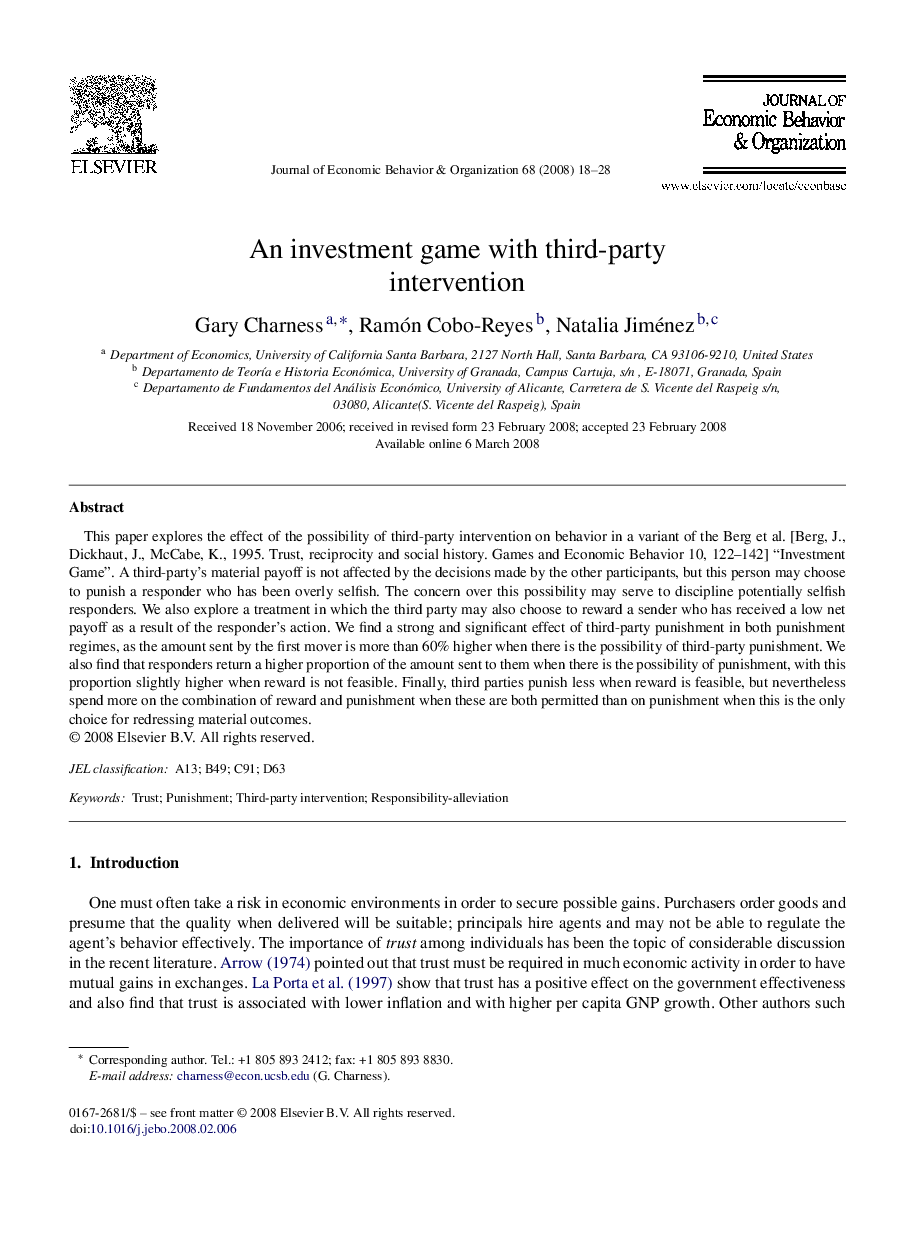| Article ID | Journal | Published Year | Pages | File Type |
|---|---|---|---|---|
| 884485 | Journal of Economic Behavior & Organization | 2008 | 11 Pages |
This paper explores the effect of the possibility of third-party intervention on behavior in a variant of the Berg et al. [Berg, J., Dickhaut, J., McCabe, K., 1995. Trust, reciprocity and social history. Games and Economic Behavior 10, 122–142] “Investment Game”. A third-party's material payoff is not affected by the decisions made by the other participants, but this person may choose to punish a responder who has been overly selfish. The concern over this possibility may serve to discipline potentially selfish responders. We also explore a treatment in which the third party may also choose to reward a sender who has received a low net payoff as a result of the responder's action. We find a strong and significant effect of third-party punishment in both punishment regimes, as the amount sent by the first mover is more than 60% higher when there is the possibility of third-party punishment. We also find that responders return a higher proportion of the amount sent to them when there is the possibility of punishment, with this proportion slightly higher when reward is not feasible. Finally, third parties punish less when reward is feasible, but nevertheless spend more on the combination of reward and punishment when these are both permitted than on punishment when this is the only choice for redressing material outcomes.
